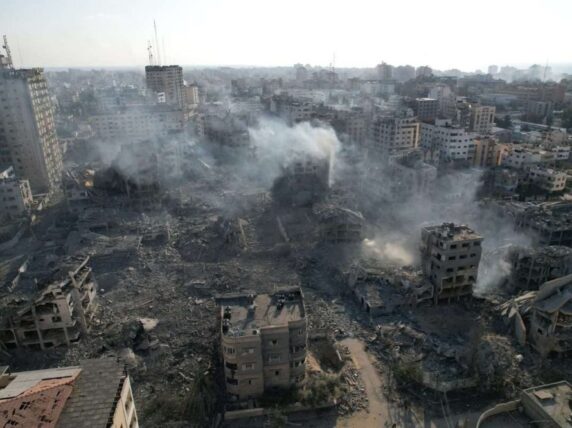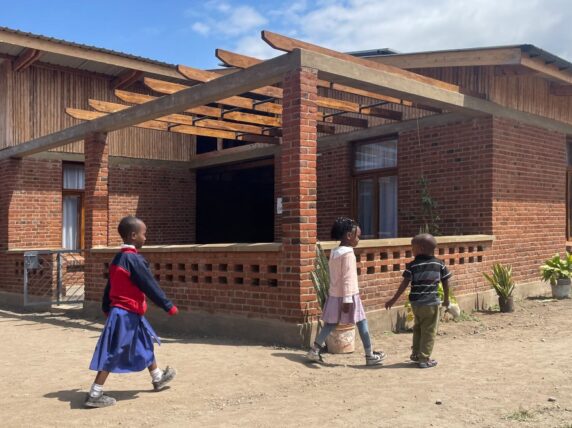NGOs pivot programmes, while critical needs in developing countries go unfunded
95% of UK-based INGOs are fighting the Covid-19 pandemic in developing countries, according to our latest survey.
Of those organisations, 41% are responding to the crisis without additional funding and are diverting existing resources to help the world’s most vulnerable.
Funding from multilaterals has trickled down to NGOs very slowly, with survey respondents citing a lack of funding opportunities, delays in dispersals, slow donor response, or a lack of transparency or closed funding calls.
We surveyed 92 Bond member organisations at the end of May to get a better picture of how NGOs are supporting developing countries during the Covid-19 crisis. We also found out how NGOs are funding their interventions and the challenges they face in accessing additional funds.
Programmes are helping people all over the world
NGOs are supporting people and communities in every region, focusing on the most vulnerable. Of those organisations responding to Covid-19:
- 80% are supporting women and girls
- 70% are supporting children and young people
- 44% are supporting older people
- 60% are supporting people living with disabilities
- 36% are supporting people with pre-existing medical conditions, such as cancer or severe respiratory issues
- 38% are supporting refugees and internally displaced people (IDPs).
| Where NGOs are running programmes | Number of NGOs | % of NGOs working on Covid-19 |
|---|---|---|
| Sub-Saharan Africa | 79 | 91% |
| Latin and Central America | 35 | 40% |
| Middle East and North Africa | 32 | 37% |
| South Asia | 49 | 56% |
| South East Asia | 34 | 39% |
Some INGOs get extra funding, while others use reserves
While 59% of organisations surveyed have managed to secure additional funding for their work on Covid-19, 41% are having to respond to the crisis without extra financial support.
Subscribe to our newsletter
Our weekly email newsletter, Network News, is an indispensable weekly digest of the latest updates on funding, jobs, resources, news and learning opportunities in the international development sector.
Get Network NewsMost organisations are using a mix of sources to fund their Covid-19 interventions. 48% are pivoting existing programmes to help vulnerable communities. But one in 10 are having to dip into their financial reserves to support the world’s poorest through the pandemic.
Public fundraising is still an important source of income, with 38% of NGOs relying on individual giving to fund their response. 23% mentioned that they have launched an emergency public appeal.
32% of additional funding comes from private foundations, such as the Bill and Melinda Gates Foundation. 16.2% of funds have been provided by the Department for International Development (DFID), 4.3% of which was supplied by DFID country offices to NGOs on the ground.
No funding for critical needs in developing countries
NGOs are struggling to find and access funding for programmes to support the poorest countries through the crisis. 83% of respondents raised concerns about the lack of funds for a variety of crucial interventions.
Here are the most critical unfunded programme needs according to our survey (and the percentage of respondents who are concerned):
- Measures that help prevent spread of infection, e.g. PPE for health workers, handwashing facilities and hygiene kits (soap, buckets, masks) (27% of respondents raised this concern)
- Measures that tackle hunger and support food security, such as distributing emergency food parcels and cash transfers for families living in poverty (25%)
- Social protection and support for jobs and livelihoods, such as measures to tackle the effects of shutdowns on small business owners (25%)
- Improved access to information and public health messaging, including supporting local radio stations to reach rural communities with hygiene and safety messaging (13%)
- Primary health care and health systems strengthening (10%)
- Rights and governance issues, e.g. support for journalists (9%)
- Issues facing women and girls, e.g. violence against women and girls, and sexual and reproductive health rights (8%)
- Support for people living with disabilities (7%)
Respondents also stressed the need to continue funding for interventions that tackle other crises and issues not related to Covid-19, such as locusts and malaria.
Additional funding tends to go to large NGOs
Large organisations have been more successful in getting new funding than smaller ones, with 81% of respondents from large organisations having secured additional funds. Conversely, 52% of small organisations and 46% of medium organisations are having to respond to Covid-19 without additional funds.
NGOs are receiving additional funding for Covid-19 from a range of institutional sources, as set out below. Following concerns about delays, a small number of organisations reported that they have received funding from UN agencies, but they are mostly large global INGOs.
| Source of additional funds | Small orgs | Medium orgs | Large orgs |
|---|---|---|---|
| Private foundation | 13 | 5 | 11 |
| DFID country office | – | 1 | 3 |
| DFID other | 2 | 2 | 3 |
| DFID RRF (Rapid Response Facility) | – | 1 | 3 |
| START network | – | 1 | 8 |
| Humanitarian to Humanitarian network | 1 | 1 | – |
| TRANSFORM (DFID/Unilever partnership) | – | – | 4 |
| Other bilateral | 2 | – | 12 |
| UK government (other) | 2 | 1 | – |
| Multilateral | 2 | 1 | 10 |
Survey respondents encountered a range of obstacles when applying for funding. The most common problems were:
- Lack of funding opportunities
- Delays, such as slow responses from donors or delays in dispersal
- Lack of transparency or funding calls that have closed without notice.
39 respondents (42% of the sample) had one or more proposals rejected from donors, and many more said they are yet to hear back from donors.
We’re advocating for the sector
At Bond, we are urging donors to increase support for programmes aimed at preventing the spread of Covid-19. We are bringing the sector together to advocate for a swift and effective global response to Covid-19, focused on the world’s most vulnerable people. We’ll continue making the case for financial support so NGOs can continue delivering their life-changing work in developing countries.
We’ll also continue gathering insights and information on how NGOs are navigating through the crisis. Check out our previous surveys results from March and April.
Check out our blog on 12 ways NGOs are helping the world’s poorest during Covid-19.
Category
News & Views



